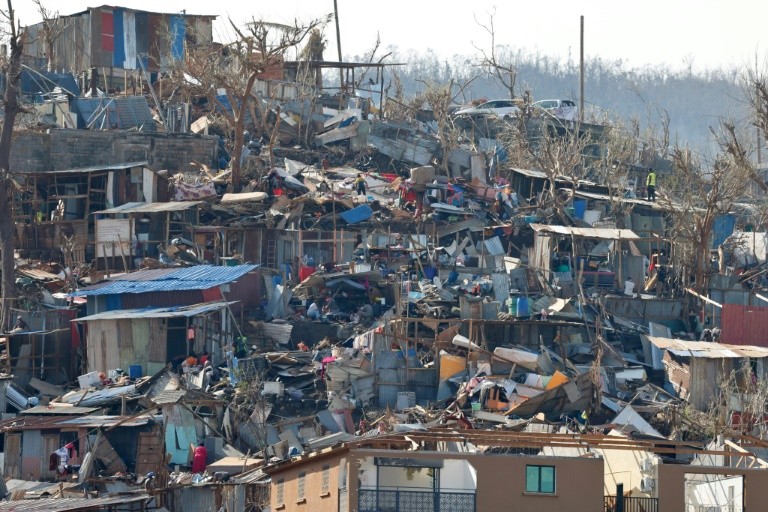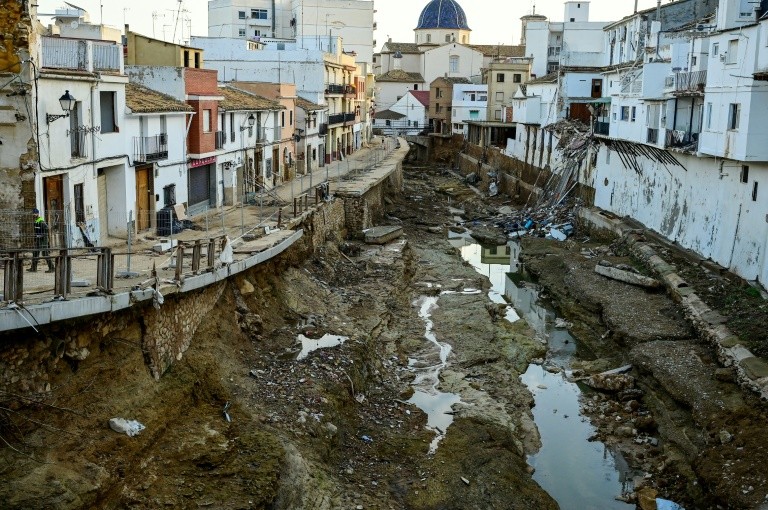
Climate change sparked a trail of extreme weather and record heat in 2024, the United Nations said on Monday, urging the world to pull back from the "road to ruin".
The outgoing year is set to be the warmest ever recorded, the UN's weather and climate agency said, capping a decade of unprecedented heat.
Meanwhile emissions of greenhouse gases grew to new record highs, locking in more heat for the future, the World Meteorological Organization said.
"Climate change plays out before our eyes on an almost daily basis in the form of increased occurrence and impact of extreme weather events," WMO secretary general Celeste Saulo said.
"This year we saw record-breaking rainfall and flooding events and terrible loss of life in so many countries, causing heartbreak to communities on every continent.
"Tropical cyclones caused a terrible human and economic toll, most recently in the French overseas department of Mayotte in the Indian Ocean.
"Intense heat scorched dozens of countries, with temperatures topping 50 degrees Celsius (122 degrees Fahrenheit) on a number of occasions. Wildfires wreaked devastation."
The 2015 Paris climate accords aimed to limit global warming to well below two degrees Celsius above pre-industrial levels -- and to 1.5C if possible.
In November, the WMO said the January-September mean surface air temperature was 1.54C above the pre-industrial average measured between 1850 and 1900.
That puts 2024 comfortably on course to surpass the record set in 2023.
Last year temperatures were 1.45C hotter than before the industrial revolution, when humanity started burning large amounts of fossil fuels.
The WMO is set to publish the consolidated global temperature figure for 2024 in January, with its full State of the Global Climate 2024 report to follow in March.
In his New Year message, UN secretary general Antonio Guterres reflected on the record temperatures witnessed over the past decade.
"Today I can officially report that we have just endured a decade of deadly heat. The top 10 hottest years on record have happened in the last 10 years, including 2024," he said.
"This is climate breakdown in real time.
"We must exit this road to ruin -- and we have no time to lose," he said.
"In 2025, countries must put the world on a safer path by dramatically slashing emissions, and supporting the transition to a renewable future.
"It is essential, and it is possible."
Saulo said she had repeatedly warned about the state of the climate throughout 2024.
"If we want a safer planet, we must act now," she said.
Experts from 15 international organisations, 12 countries and several leading academic and NGO figures convened at the WMO's Geneva headquarters from December 17-19 to work on a coordinated framework for tackling the growing threats from extreme heat.
The WMO turns 75 in 2025 and intends to mark the anniversary by focusing on the cryosphere: the frozen parts of the Earth, including sea ice, ice sheets and frozen ground.
The WMO is also behind a major push for improved climate services and early warning systems.










